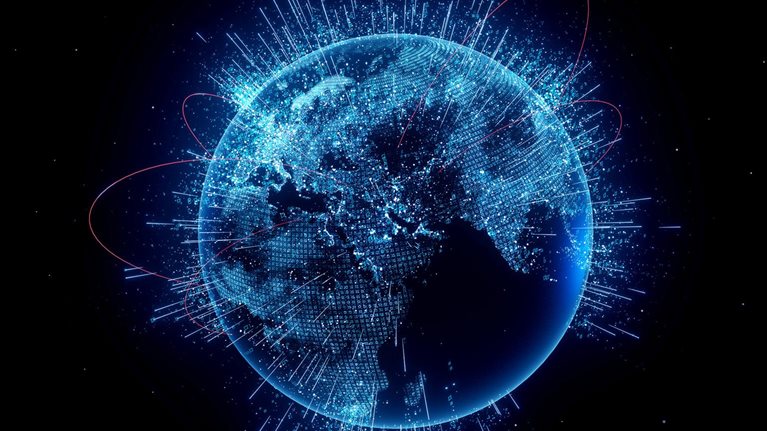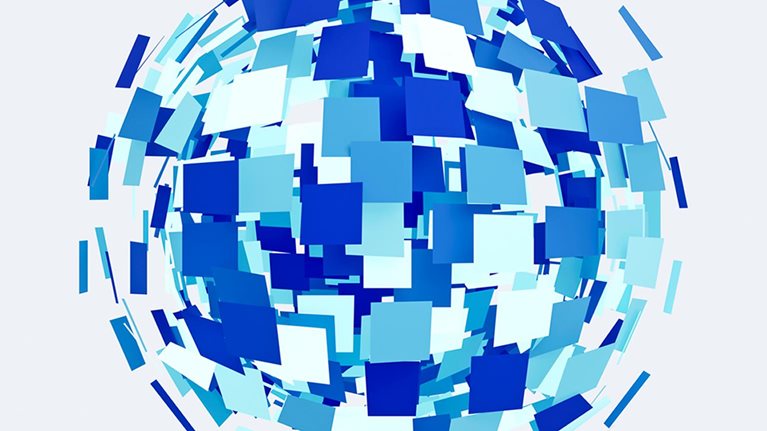Geopolitical risk is center stage. There are the Russia–Ukraine conflict, strenuous relationships among countries across the globe, internet restrictions, and competing interests across Europe. The conflicts themselves are hard enough, but disinformation is another element making it even tougher for companies and organizations to navigate risk successfully.
During the Thrive 2022 leadership event, Ziad Haider, McKinsey’s global director of geopolitical risk, spoke with three executives managing these risks—and more. The virtual summit brought together C-suite executives, risk experts, and others to share their experience in planning, managing, and building to cope and thrive in a continuously changing risk environment.
Haider spoke with Bruce Andrews, corporate vice president and chief government affairs officer at Intel; Karan Bhatia, global head of government affairs and public policy at Google, and Sally Susman, executive vice president and chief corporate affairs officer at Pfizer. They discussed the geopolitical challenges that organizations are facing and how each one is building organizational resilience.
Navigating the conflict in Ukraine
The Russia–Ukraine conflict is a geopolitical risk that organizations had to face in 2022. As a pharmaceutical company, Pfizer has an exemption to trade with Russia. As Susman said, however, “We didn’t want to just take a business-as-usual approach and just carry on as if nothing had happened,” so it donated profits to Ukrainian relief efforts.
For Intel, the conflict has served as “a real stark reminder of the need to make sure, both in terms of how we run our company and how we sell things, that we really do look to have resiliency and redundancy,” Andrews said, “whether that’s in manufacturing, whether that’s in supply chain, or whether that’s in R&D.”
A huge challenge? “Fighting disinformation,” Susman said. “It was becoming clear to us that this war, perhaps more so than any other, was going to involve a whole slew of disinformation vectors.”
Treading carefully in China
Another risk prevalent in 2022 was the discordance of relationships among countries across the globe, such as with China and the United States. Per Andrews, 25 percent of the world’s semiconductors are consumed in electronics in China, and another 25 percent go through the Chinese manufacturing industry. So, he said, there have been some questions to consider. “How do we engage in China? How do we make sure that we’re in a position that, if the US government does take more significant action, we’re protected while also remaining strong and competitive in the China market?”
Vaccines and COVID-19: Managing supply chain and educational challenges
COVID-19 has remained an area of risk that organizations manage. “What I learned was the importance in these moments to be almost hyperpresent, to make yourself the educator in chief—explaining the new mRNA technology, explaining how we’re building equity and fairness into our system,” Susman said. “It was just really exhilarating and exhausting, but more exhilarating, to work in this way and to be really engaged with the public in an almost educational role, which was new for us and very exciting.”
Handling global regulation and the internet
The topic of internet restrictions was another large part of risk in 2022. Bhatia said Google aims to make information free and accessible. “In some countries, we’ve seen a dramatic growth in regulation of the internet and of platforms, including regulation of content online, which is a growing phenomenon and challenging,” Bhatia said. “We operate by the rules of the countries in which we are present until we can’t.”
Staying informed
Conflicting information is an evergreen risk topic. “It’s a great frustration to me when I read things in different places and get entirely different takes on what’s actually happening somewhere, as most of the news outlets really do have a bias,” Susman said, adding that she tries to get first-person information and reporting.
Bhatia said he looks to stay informed through holistic perspectives, such as “sources that help me step back and sort of understand what the tectonic shifts are under way that are impacting or going to impact the sector.”
Considering the growing importance of government affairs
The area of government affairs, per Susman, is growing fast. “It’s going to become more important to the companies that we serve, and it’s an exciting time to be in the space,” she said.
Staying ahead of current events around the world
Part of risk management in 2022 was factoring in information for an increased number of markets. “The world has evolved,” Andrews said. “It used to be that people only paid attention to the US or a couple of big markets. And I think we now are much more in a multipolar world where what happens in Europe is often a precursor to what may happen in the US or what’s going on in China has to interact with what’s going on in the EU or in the US.”
Encouraging input from employees
When it comes to overseas risks, organizations have found that asking employees for input is key. “Our employees don’t hesitate to lean in on things,” Bhatia said. “Our employees in Central and Eastern Europe, for instance, have been really helpful and important in informing us about the disinformation risks that they see in the region. And that, in turn, informs our product and actions—recently, the work that we’ve done with our Iranian employee relations groups about how Google products can be deployed to help support internet access for the people of Iran.”
Calculating future risks
Andrews sees China–US relations as the top issue for 2023. “These are the two most consequential countries in the world right now, with everything going on, and they have a remarkable ability to work together and to lead. But if we see a further degradation of that relationship, it also presents a significant risk, not just to the business community, but also to global stability overall,” he said.
Susman said disinformation, in her experience around vaccines, is a top risk. “It really concerns me because I think if we don’t have that baseline of integrity of information and clarity about truth and science, we’re really in a very horrible spot,” she said. “So that’s what’s keeping me up at night.”
Bhatia fears that the internet will become inconsistently regulated. “You quickly see this specter of a fragmented internet developing. And one thinks about all the benefits that have been derived from an integrated, free, interoperable internet over the past 15 to 20 years, and now look at this future of one that is a ‘splinter net,’ not an internet,” he said.


